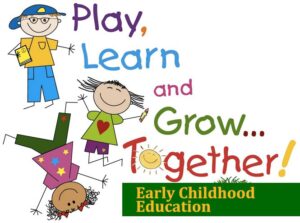Early Chilhood Education
KDOE Mission: To provide a student-centered education system that develops the skills, knowledge and values of the youth and young adults of Kosrae to become responsible, productive and life-long learners and be competitive locally and globally.
 The Kosrae early childhood education program focuses on providing developmentally appropriate experiences for children between the ages of 3 and 5. This age group is crucial for laying the foundation for later learning and development. The program likely includes a combination of structured and unstructured activities, as well as a range of learning opportunities that engage children in various ways.
The Kosrae early childhood education program focuses on providing developmentally appropriate experiences for children between the ages of 3 and 5. This age group is crucial for laying the foundation for later learning and development. The program likely includes a combination of structured and unstructured activities, as well as a range of learning opportunities that engage children in various ways.
For example, the program may incorporate play-based learning, where children learn through exploration and discovery. This type of learning often involves hands-on activities, such as building with blocks, drawing and painting, and engaging in imaginative play. Play-based learning is particularly effective for young children, as it supports their natural curiosity and creativity, while also developing important skills such as problem-solving, critical thinking, and social skills.
In addition to play-based learning, the Kosrae early childhood education program may also include more structured activities such as circle time, storytime, and small group activities that focus on specific skills such as early literacy, math, and social-emotional development. These activities are designed to help children develop important skills and concepts that will prepare them for later learning.
Parent involvement is also an important component of many early childhood education programs, including the Kosrae program. The program may offer opportunities for parents to participate in their child’s learning, such as through parent-teacher conferences, parent workshops, or by providing resources for parents to support their child’s learning at home.
Overall, the Kosrae early childhood education program serves an important role in providing young children with a strong foundation for later learning and development, while also promoting a love of learning and a sense of curiosity and wonder in the world around them.


